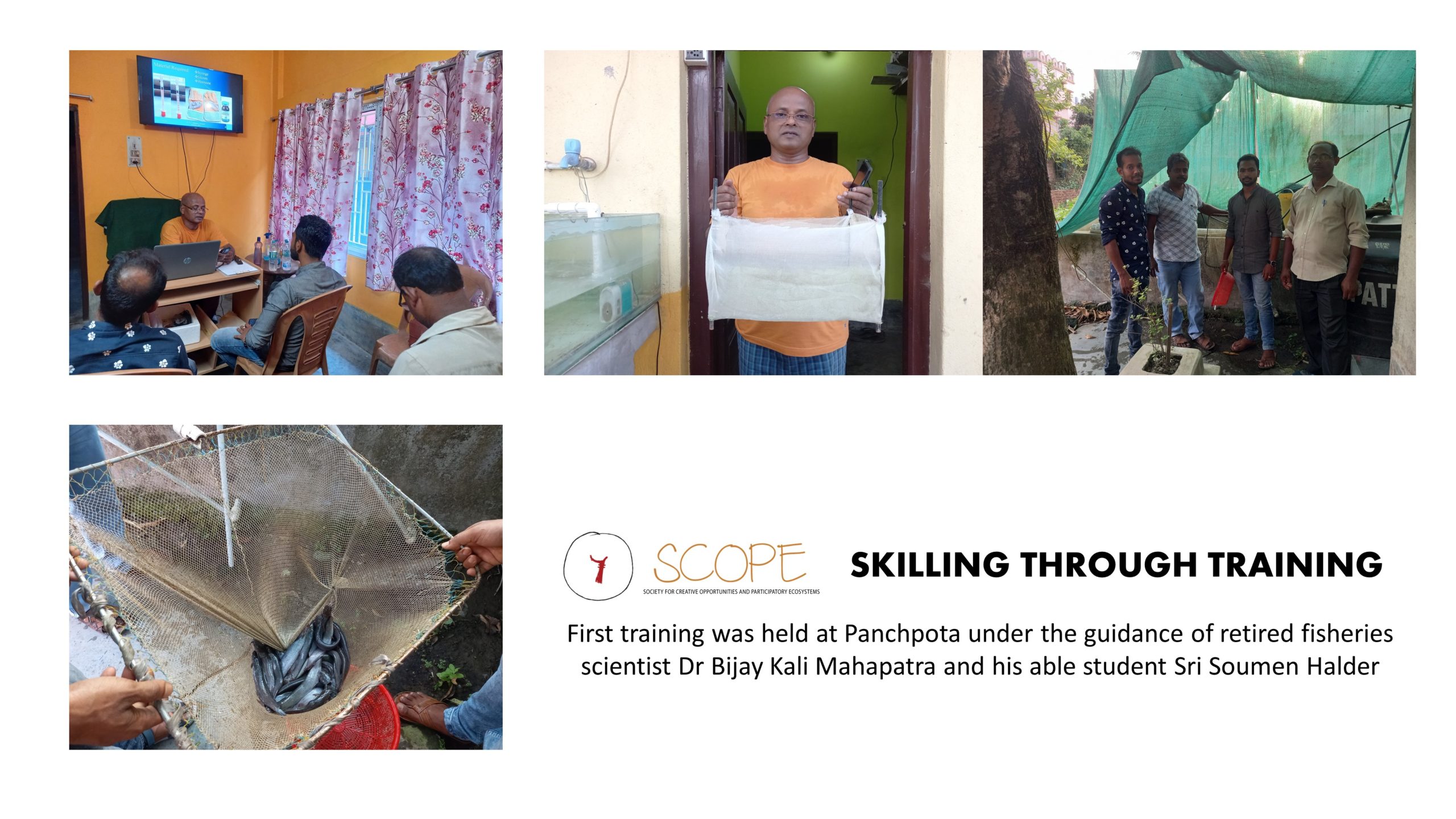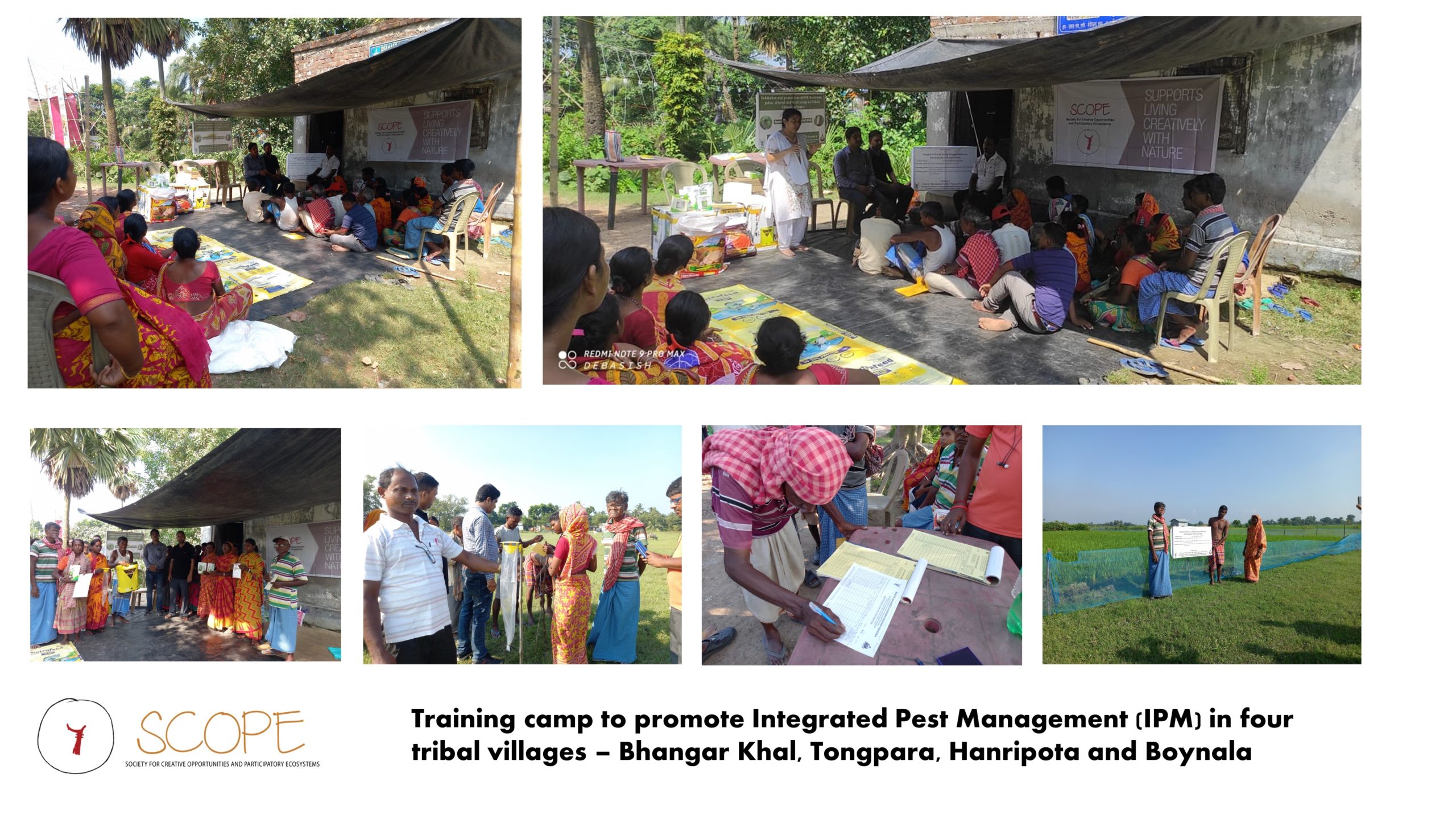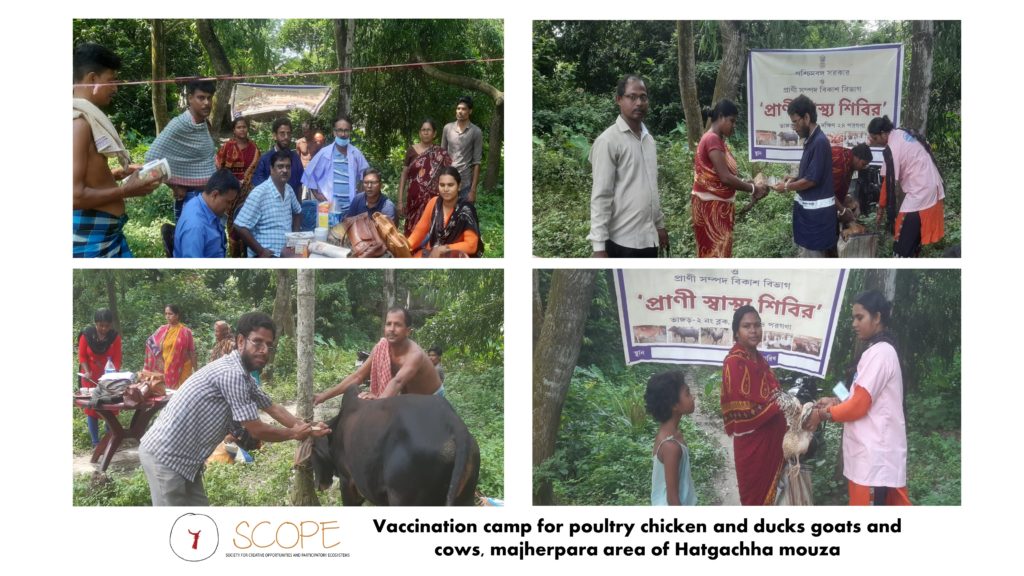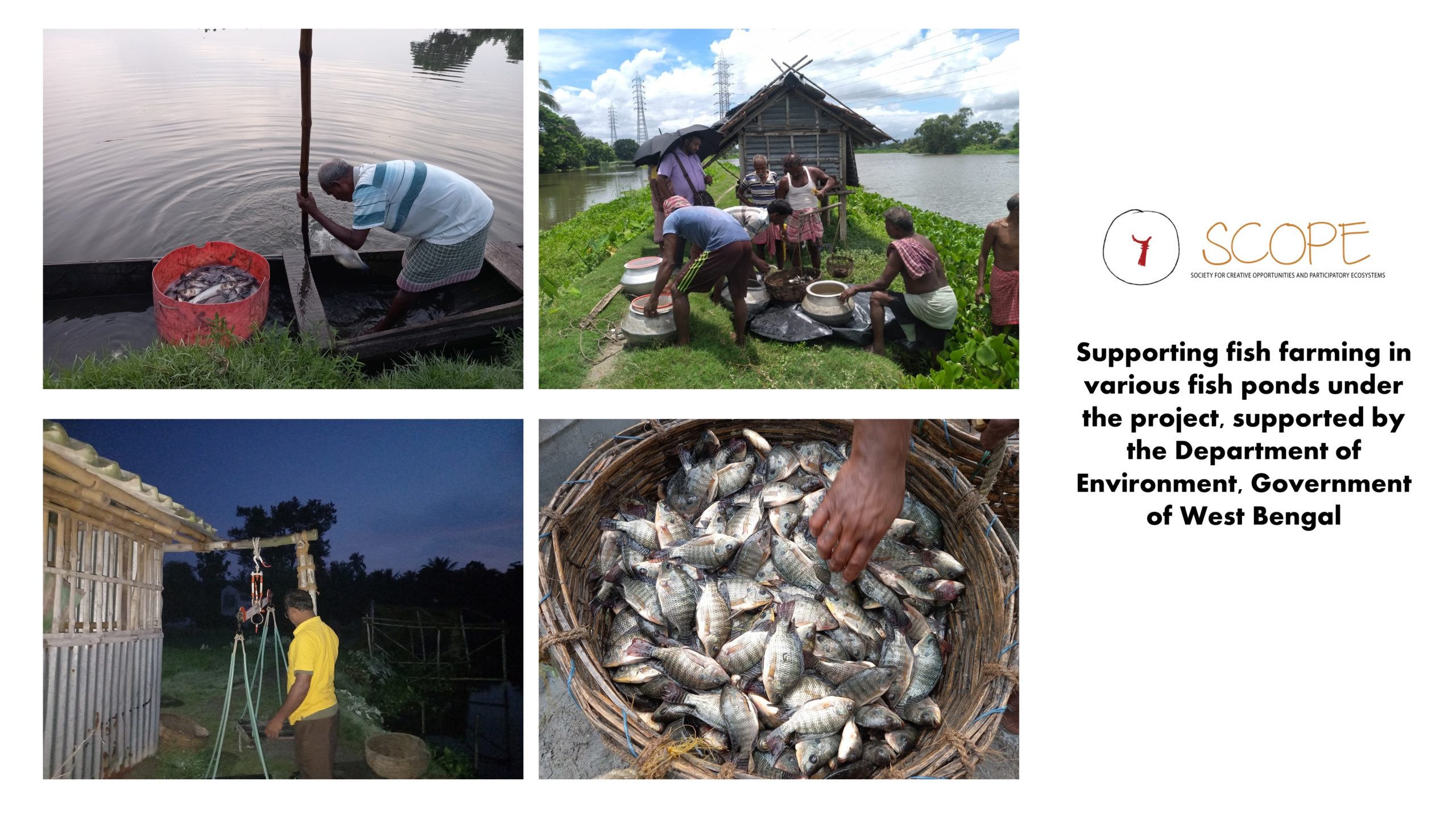Activity – Additional livelihood option to improve income generation
2023-24
SKILLING THROUGH TRAINING
Developing entrepreneurial skills is our medium to long term goal, and slowly expanding a group of skilled fish breeders will not only enhance productivity, but it will also generate employment. Our new focus on training of potential young breeders from the East Kolkata Wetlands will enthuse them to set up their own small hatcheries and supply to the big fisheries in the future. Our first training was held at Panchpota under the guidance of retired fisheries scientist Dr. Bijay Kali Mahapatra and his able student Sri Soumen Halder.
2022-23
AGRICULTURE
Agriculture is an important activity of intervention and it involves mainly the Scheduled Tribe component of the wetland community. Our work includes input supply, training in current crop growing methods and monitoring the impact of use of technology, facilitating expert advice and other related activities.
Training in Integrated Pest Management techniques
Sashya Shyamala Krishi Vigyan Kendra, under the jurisdiction of Agricultural Technology Application Research Institute (ATARI), Kolkata is promoting Integrated Pest Management (IPM) as part of the ICAR-National Research Centre for Integrated Pest Management initiative that is taking IPM to tribal villages in India. Accordingly, a training camp was held on September 29, 2022 to teach IPM to villagers from 4 tribal villages – Bhangar Khal, Tongpara, Hanripota and Boynala – techniques in IPM with respect to cereal and horticultural crops. Some equipment was also given for pest management, and two groups were formed – one for IPM in rice crop and the other for IPM in vegetable crops.
ANIMAL HUSBANDRY
- Focus on additional income generation through scientific rearing of turkey and backyard poultry, ducks.
- Organising of regular trainings for tribal villagers in the villages of the EKW in collaboration with Sasya Shyamala Krishi Vigyan Kendra (KVK), Arapaanch, Sonarpur
- Arranging for supply of day-old-chicks and backing up with fodder and medicine supply
- Vaccinating and monitoring the growth of poultry and disease management
After the successful conclusion of our wetland conference titled Connecting Wetland Narratives to Action Plan: A Stakeholder’s Dialogue (August 30-31, 2022), the Block Livestock Development Officer of Bhangar II block of South 24 Parganas district expressed his keenness to hold a vaccination camp in a hitherto non-targeted area of the wetlands. Since we had just concluded a complete enumeration of the Hatgachha mouza of the East Kolkata Wetlands, it was decided that the majherpara area of this mouza would be the suitable location for vaccinating poultry (chicken and ducks), goats and cows. Accordingly, a vaccination episode was held in September, pictures below. One more camp is scheduled in the near future.

FISHERY
Our work with the fishermen and women of the East Kolkata Wetlands have involved small fish ponds owners, giving them crucial input support especially over the past few years when they have face an acute capital crisis exacerbated by the sewage crisis.
SCOPE is carrying out a project to help distressed fisherfolk in the East Kolkata Wetlands who are engaged in fish farming in various fish ponds, called bheris. This project, supported by the Department of Environment, Government of West Bengal, is providing a one-time support of supplying fish fingerlings to 8 bheris in Dhapa Manpur, Dakshin Dhapa Manpur and Kheadaha mouza. The pictures below show fish farmers in two of the bheries that have received support.
2021-22
Input supply and monitoring impact
The severe cyclonic storm Amphan had a debilitating impact on an already struggling population whose food security was in jeopardy. In order to support the agricultural requirements of the wetland community, we distributed High Yielding Variety paddy seeds among villagers to tide over the immediate losses suffered due to the current crisis.





